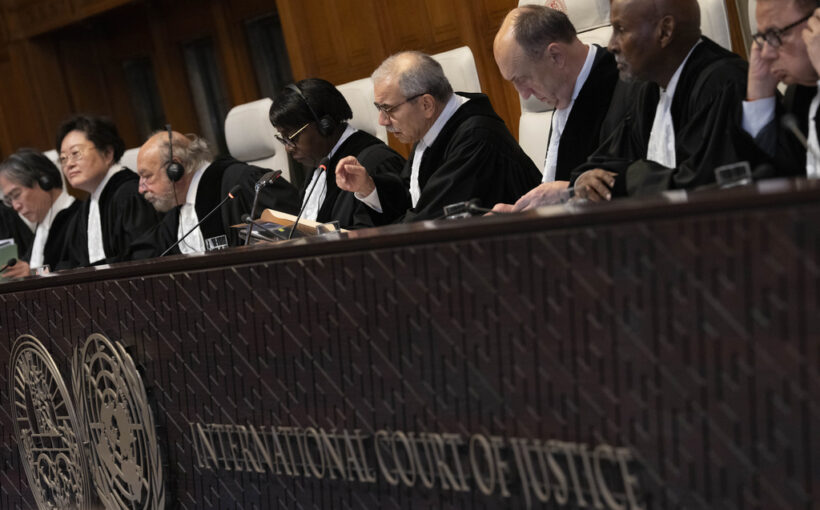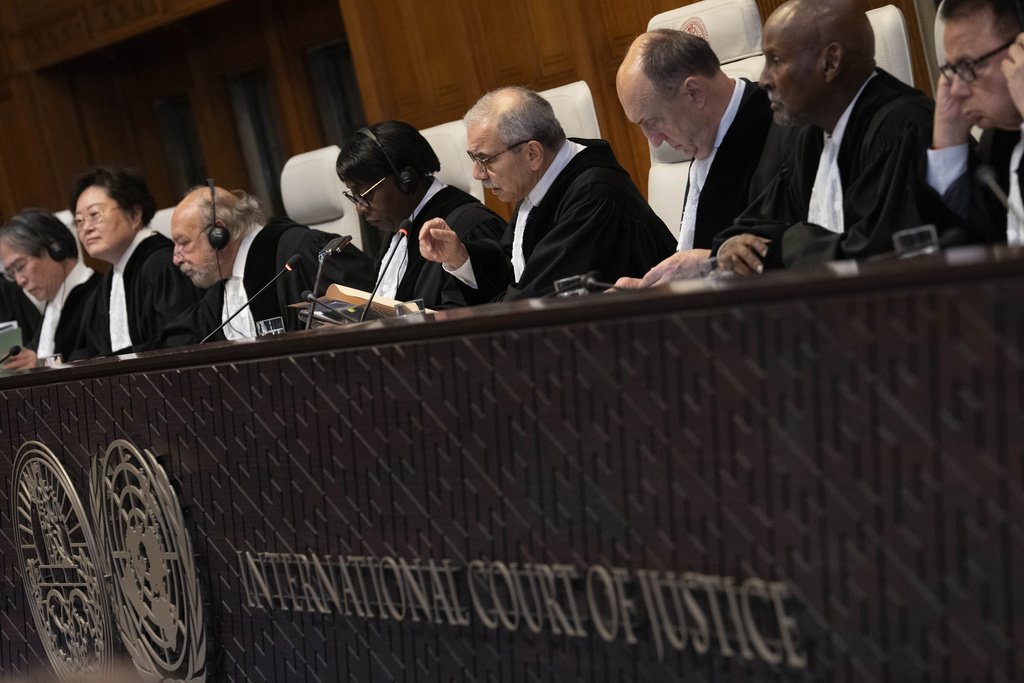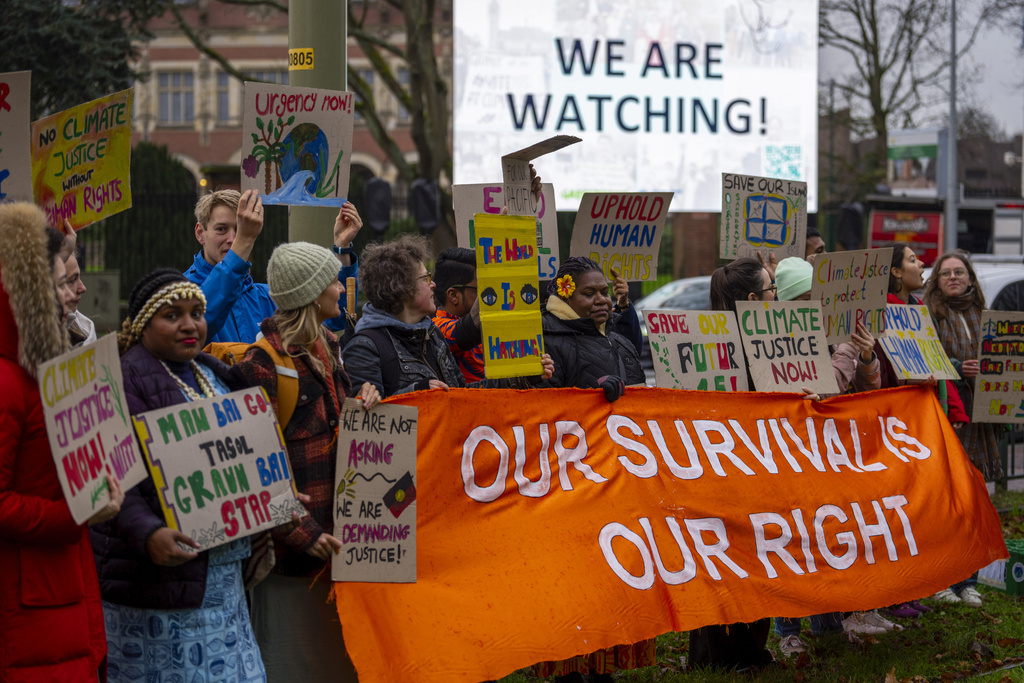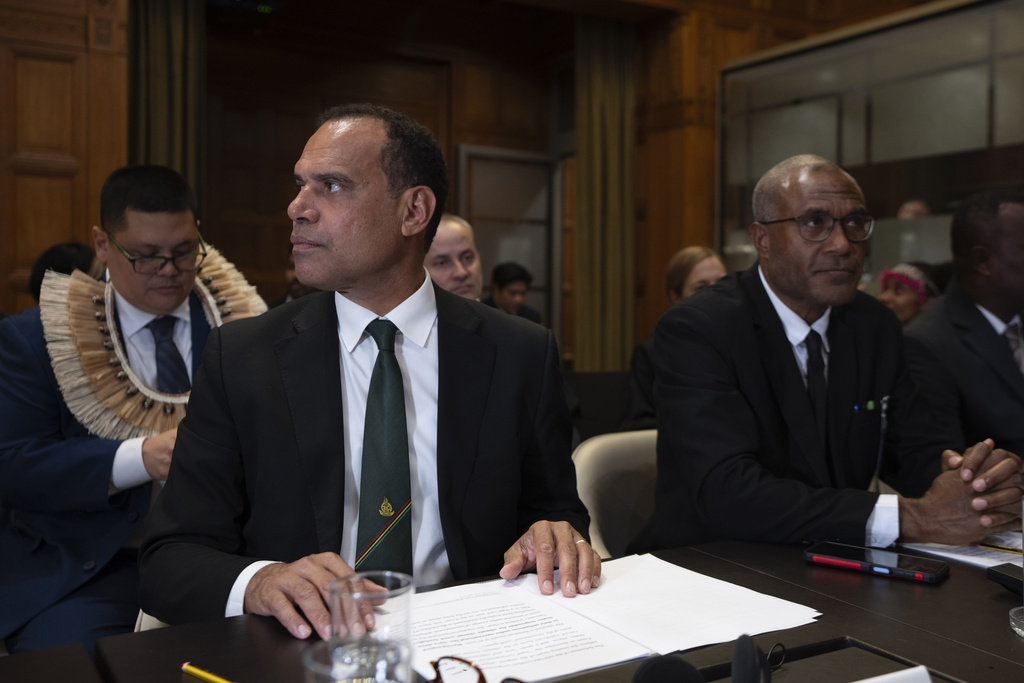The top United Nations court has taken up the largest case in its history, hearing the plight of several small island nations helpless in combating the devastating impact of climate change that they feel endangers their very survival. They demand that major polluting nations be held to account.
After years of lobbying by island nations who fear they could simply disappear under rising sea waters, the UN General Assembly asked the International Court of Justice last year for an opinion on “the obligations of States in respect of climate change”.
Vanuatu Attorney-General Arnold Kiel Loughman said the stakes “could not be higher” as the “survival of my people and so many others is on the line”.
“As the principal legal officer of my country, I have come before this court because domestic legal remedies are unable to address a crisis of the scope and magnitude,” he said on Monday during the opening session of two weeks of hearings.
“States have obligations … to act with due diligence, to prevent significant harm to the environment, to prevent, to reduce the emissions and provide support to countries like mine to protect the human rights of present and future generations,” he said.
Any decision by the court would be non-binding advice and couldn’t directly force wealthy nations into action to help struggling countries. Yet it would be more than just a powerful symbol since it could be the basis for other legal actions, including domestic lawsuits.
In the decade up to 2023, sea levels have risen by a global average of around 4.3 centimetres, with parts of the Pacific rising higher still. The world has also warmed 1.3 degrees since preindustrial times because of the burning of fossil fuels.
Vanuatu is one of a group of small states pushing for international legal intervention in the climate crisis but it affects many more island nations in the South Pacific.
Cynthia Houniuhi, the head of the Pacific Island Students Fighting Climate Change that initiated the case, said climate change was undermining “the sacred contract” between generations.
“Without our land, our bodies and memories are severed from the fundamental relationship that define who we are. Those who stand to lose are the future generations. Their future is uncertain, reliant upon the decision making of a handful of large emitting states,” she told the court, referring to China, India and the United States.
Joie Chowdhury, senior attorney at the Centre for International Environmental Law, said that the conduct of major polluters responsible for the climate crisis and its catastrophic consequences is unlawful under multiple sources of international law.
Vanuatu’s climate change envoy Ralph Regenvanu told the court that since 1990, emissions have increased by more than 50 per cent, reaching an all time high in 2023.
“A handful of readily identifiable states have produced the vast majority of historic and current greenhouse gas emissions,” he said.
“Yet other countries, including my own, are suffering the brunt of the consequences.”
The Hague-based court will hear from 99 countries and more than a dozen intergovernmental organisations over two weeks. It’s the largest lineup in the institution’s nearly 80-year history.
Last month at the United Nations’ annual climate meeting, countries cobbled together an agreement on how rich countries can support poor countries in the face of climate disasters. Wealthy countries have agreed to pool together at least $US300 billion ($510 billion) a year by 2035 but the total is short of the $US1.3 trillion ($2 trillion) that experts and threatened nations say isneeded.
“For our generation and for the Pacific Islands, the climate crisis is an existential threat. It is a matter of survival, and the world’s biggest economies are not taking this crisis seriously. We need the ICJ to protect the rights of people at the front lines,” said Vishal Prasad, of Pacific Islands Students Fighting Climate Change.
Fifteen judges from around the world will seek to answer two questions: What are countries obliged to do under international law to protect the climate and environment from human-caused greenhouse gas emissions? And what are the legal consequences for governments where their acts, or lack of action, have significantly harmed the climate and environment?
The second question makes particular reference to “small island developing states” likely to be hardest hit by climate change and to “members of “the present and future generations affected by the adverse effects of climate change”.
The judges were even briefed on the science behind rising global temperatures by the UN’s climate change body, the Intergovernmental Panel on Climate Change, ahead of the hearings.






